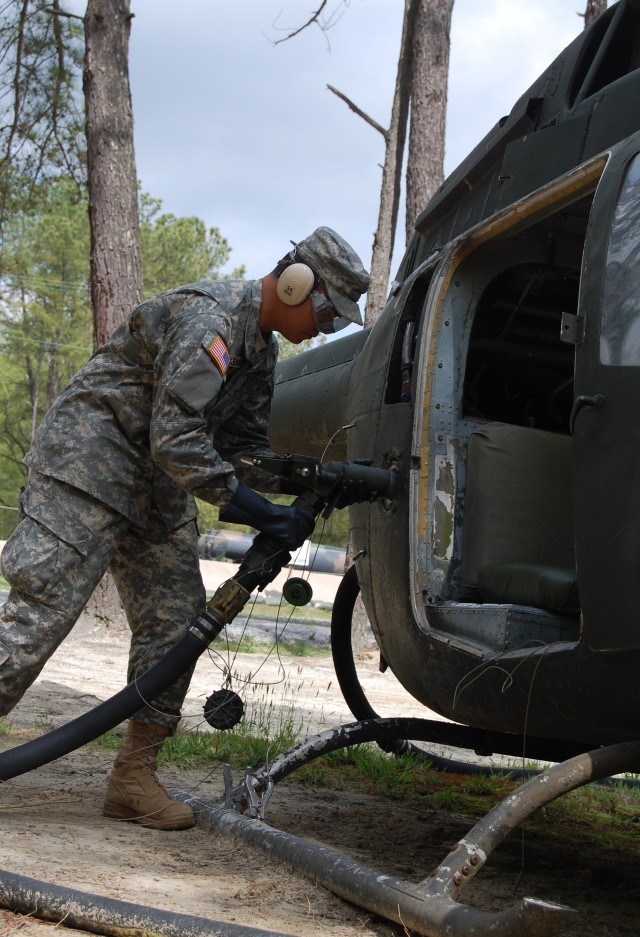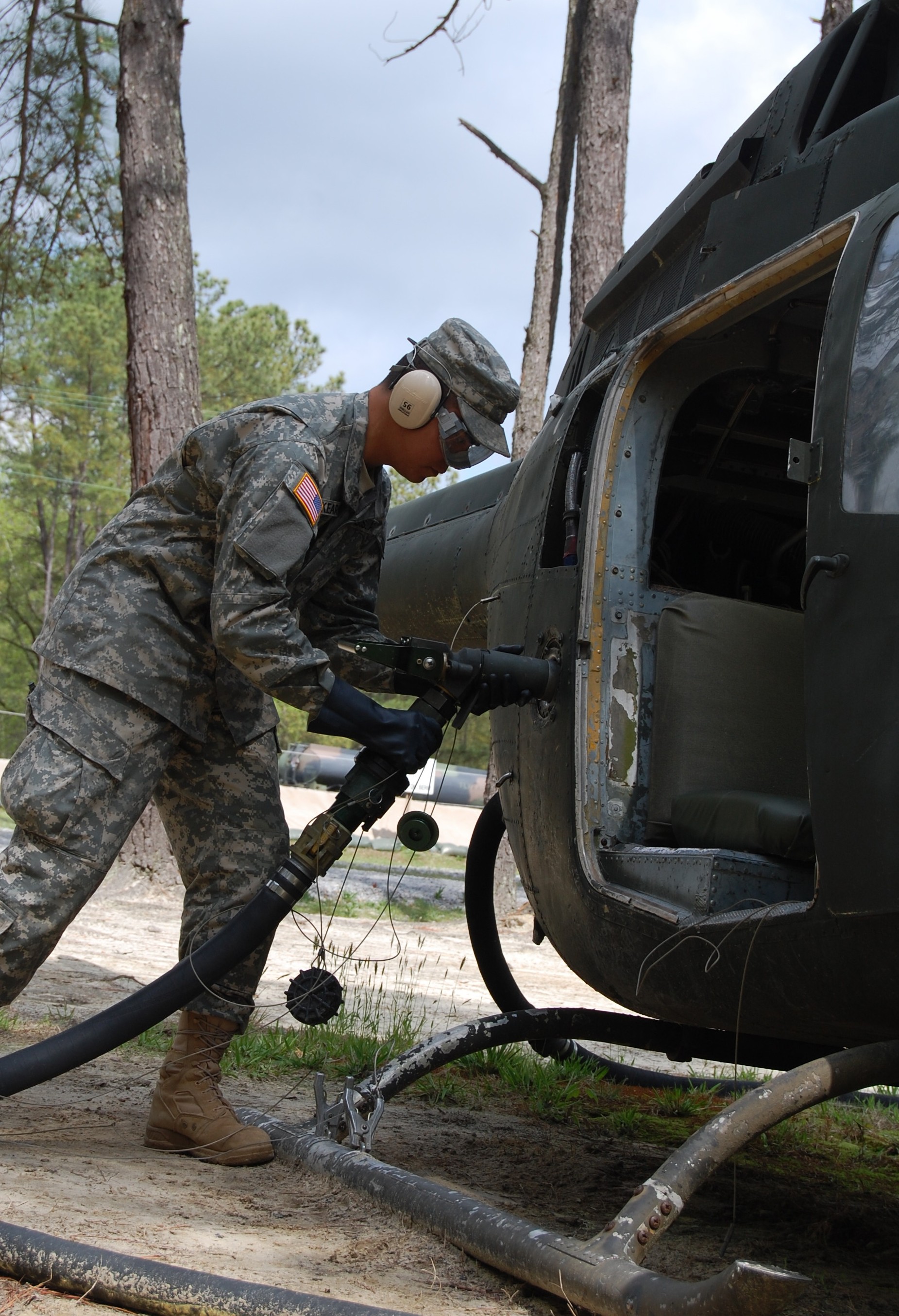FORT LEE, Va. (May 28, 2009) -- Years from now, the advanced individual training Soldiers will look back on these last few months when they first learned their Army trade. But today there is just one thing on their minds...graduation.
The Soldiers of Class 042-09, graduating from the petroleum supply specialist course at Fort Lee's Petroleum and Water Department, may have closed the first chapter of their Army career today, but it's worth taking a closer look at how it all began.
For the past 10 weeks, the students woke up at 4:30 a.m. for physical training. Before the 9 p.m. lights out, the students would spend nine to 10 hours in class.
With little personal time, their days are all about fuel - how it's made; how it's tested; how it's pumped; and how it gets to the vehicles that maneuver in combat operations.
"It's fast-paced; you can't sleep through this," said Pfc. Joshua A. Kearney.
Throughout the course, Kearney had a passion for learning his position as a petroleum supply specialist, perhaps because he had a passion for the military before he ever stepped foot in basic training.
"I grew up in a military Family and I wanted to follow the tradition set by my father, grandfather and brothers," said Kearney. "It's something I've wanted to do since I was a child and I plan on making a career out it."
Kearney's battle buddy agrees. "Being a Soldier is something I've always wanted to do," said Pfc. Michael P. Daunais. "I have a two-year-old son and I want him to grow up and be proud of his daddy."
Every 92F career begins with AIT at Fort Lee. Instructor Tommie B. Livingston covers subjects including: petroleum supply operations, gravity and visual examination of petroleum products, gauging and sampling, aircraft refueling operations, petroleum pipeline equipment and maintenance and the operation of various petroleum fueling vehicles.
The first thing every petroleum supply specialist learns is the safety procedures and handling of petroleum products. Before the Soldiers can interact with fuel, they learn what to do in case of a spill or fire.
But for most Soldiers, the safety procedures are not their favorite part of training.
"I enjoy the aviation refueling," said Pvt. Jordan J. Mouton. "The thought of refueling a helicopter while it's still running is exciting."
The Petroleum and Military in the Field Training Facilities host an obstacle course of petroleum supply specialist tasks. At these facilities, students learn the procedures to construct and deconstruct pipelines and control, pump, and scrutinize the transfer of fuel to both land and aviation vehicles.
"Working with the HEMTT (Heavy Expanded Mobility Tactical Truck) was my favorite part of the course because it's the primary vehicle in the military and it is so versatile," said Pfc. DantAfA.. Q. Johnson.
In the lab, the class deciphered between types of fuel by testing the fuel temperature and density and comparing it to fuel standardization charts. In addition, they were taught the most common contaminants they may find in the field.
And in the classroom, students spent countless hours learning the specifications of every valve, truck, tank and fuel they might come in contact within their careers. The classroom is where some students felt the course was the most challenging.
"The memorization of the valves on different vehicles, hose sizes and operation sequences was the most challenging part of the course," said Pfc. Fernando O. Fernandez-Rodriguez. "They are all so similar and only differ slightly."
A lingering stereotype that 92Fs are simply gas station attendants was set straight by Livingston's class.
"We are far from just ordinary gas station pumpers," said Daunais. "We are a fuel enterprise on wheels."
"Nothing in the Army moves without a 92F," said Pvt. Robert M. Ivan.
The Soldiers in Livingston's class joined the Army for many different reasons. Some joined for the experience, some to acquire the money for a college education and others because they believe it an obligation and honor.
"I feel blessed to have been part of these Soldiers lives," said Livingston. "We teach them in the theater concept of operation and expect that will keep them sharp on and off the battlefield."
As these Soldiers cross the stage at their course graduation today they close another chapter in their Army lives and begin a new one.
"Outside of the Army I had some successes, but nothing that I feel like has as much importance as being here," said Kearney.
Battle buddies, Kearney and Daunais achieved further success together as this course concludes. With a 98.2 grade average, Kearney is the distinguished graduate and Daunais trailed just behind him and will accept honor graduate.
The battle buddies are headed to opposite ends of the world for their first duty assignments. Kearney is headed to Fort Bliss, Texas, while Daunais is headed to Yongsong, Korea.
"The course has been a huge investment," said Daunais. "It's probably the most successful chapter in my life by far, and I'm excited about the road ahead."


Social Sharing